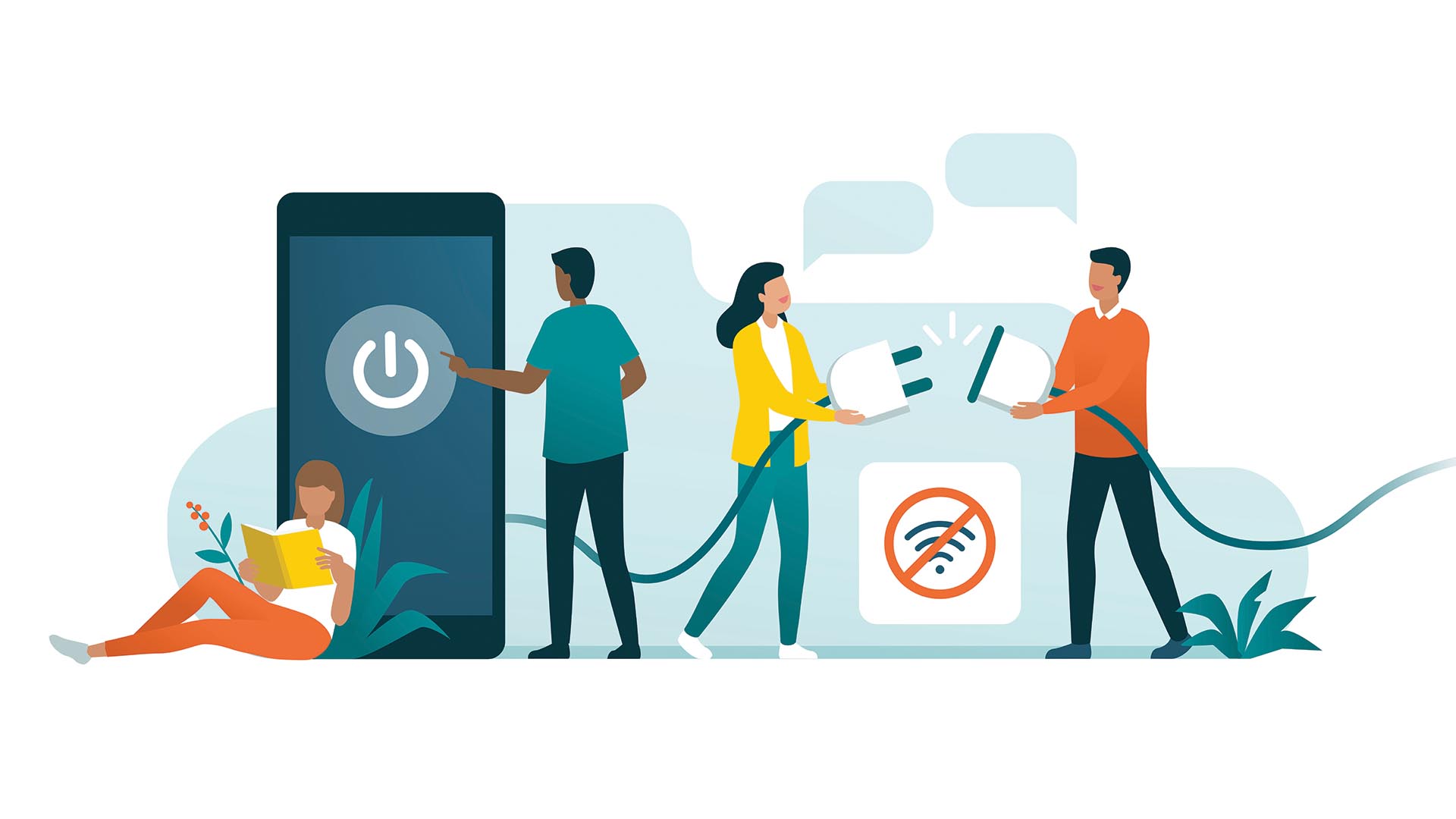9 ways to have healthier social-media habits
How psychology and computer-science experts say you should manage your internet usage for better mental health in 2023.

Technology is wreaking havoc on our collective mental health.
Current numbers put our average daily use of social media at 147 minutes. That’s two and a half hours each day where many of us are being “social” without ever interacting with an actual human. Spending too much time glued to our digital devices and social feeds can negatively impact our relationships and contribute to elevated levels of anxiety and depression.
“There’s plenty of solid evidence that social media contributes to symptoms of anxiety and depression, not least because human brains are natural comparison machines,” said Randi Smith, Ph.D., Psychology professor at Metropolitan State University of Denver. “We’ve evolved to become exceptionally good at categorizing and sizing up things, then figuring out where we fit in.”
RELATED: Is social media bad for your health?
For a better 2023, Smith and Steve Beaty, Ph.D., professor of Computer Sciences at MSU Denver, have some hard and fast solutions to help wean you off the machines.
Switch off your notifications
Turn off all your phone and computer notifications (except those you genuinely need), then exult in a newfound beep-free peacefulness. Ask yourself: Did you really need to be notified every time someone posted on social media or “liked” something you’d posted? Answer: probably not. Instead, dedicate a little time at intervals each day to catch up on your online activity. That way, you’ll control your social-media narrative rather than being led by it. And remember: Our collective FOMO is hopelessly misplaced. “Among the reams of messages and pictures we’re fed each day,” Beaty said, “there’s generally very little of real importance.”
Be aware that social media fuels anxiety
Viewing social media, where people curate posts to present their very best, sexiest and most successful selves, can evoke in us feelings of what psychologists call relative deprivation, Smith said. (How did Brad graduate more quickly than me? Where did my neighbor find that great car? Why is everyone else going on vacation?) When you’re constantly comparing your status against the rest of the world, it’s hard to come out on top.
Consider how much time you spend online
“Social-media interactions are incredibly two-dimensional because people share only small, carefully edited aspects of themselves online,” Beaty said. “So we aren’t really getting to know each other at all.”
Time is the most precious resource any of us will ever have. Do you want to spend an eighth of your days on this planet scrolling through other people’s lives or more actively living your own?
Choose your social activity wisely
Nothing helps you gain perspective like a full media cleanse. But if the prospect of a complete social-media fast is too daunting, then simply limiting the number (and types) of accounts you follow can also be helpful, Smith said. To use an obvious example: Choosing to follow your favorite pet charity and your cherished sister who lives out of state will be far more meaningful — and certainly better for your self-esteem — than hitching your e-wagon to the likes of Kendall Jenner or Kanye West.
Beware of noise over signal
We’re always striving to find more “signal” (useful information) and less “noise” online, Beaty said, but especially on social media, this is basically a fool’s errand. As you consume more information, the ratio of noise over signal increases — what author-philosopher Nassim Nicholas Taleb calls the “noise bottleneck.” Every Twitter user will be familiar with the dispiriting sensation of seeking clarity on a topic online but instead drowning in a sea of misinformation sludge. As Talib puts it: “The problem with information is not that it is diverting and generally useless but that it is toxic.”
Set time limits on your device
Numerous apps can track precisely how much time you’re spending online and even help you enforce limits. For those using iOS devices, the Screen Time tool diligently tracks your online sessions and lets you limit the time spent on certain apps (or block them). There’s also a useful range of Android time-tracker apps, while Google has a similar feature called Wellbeing. “If you’re genuinely serious about spending less time on your device,” Beaty said, “these tools will help you cut down.”
RELATED: 5 tips for healthier social-media use
Understand that scrolling is a time-suck (and that sucks)
Social media’s built-in addictive properties and its array of shiny objects (likes, retweets, DMs, etc.) don’t only rob us of our time; they make us feel bad about it. Ever gone to quickly check out Instagram for 10 minutes, only to look up again two hours later with a sore scrolling thumb and a sense of creeping dread? You’re far from alone. These loss-of-control scenarios can contribute to feelings of personal regret, lethargy, frustration and shame, Smith said, all of which in turn could potentially accelerate depressive and anxious processes.
Remember that social media is literally addictive
As the saying goes, “If you don’t know what a site is selling, it’s selling you.” Thanks to their access to everything in your browser and your phone’s applications, social-media companies know you and your preferences inside out, which is how they make a fortune pushing advertisements your way. But it’s even creepier than that. “Social platforms employ neuroscientists to make themselves more ‘sticky’ so you’ll be tempted to stay longer on their site or at least keep coming back,” Beaty said.
Given that so many major studies now clearly align social-media use with other addictions, it’s worth asking: Do you really want to support platforms that so flagrantly take advantage of you?
Build better social (not ‘social’) habits
We all get wound up by other people’s online behavior — who couldn’t name an infuriatingly scroll-addicted friend or family member right now? — but we often struggle to appreciate how annoying our own habits can be. “One good answer is to arrange tech-free timeouts,” Smith said.
For example: Carve out phone-free periods with another person where you’ll be fully present for each other. At mealtimes, set the phones in the middle of the table and agree that whoever reaches out first will do the dishes (or pick up the tab, if you’re dining out). Maybe best of all, arrange old-fashioned game nights where guests gather around board games and leave their phones at the door. Who knows? You might enjoy having one another’s full attention for once.







